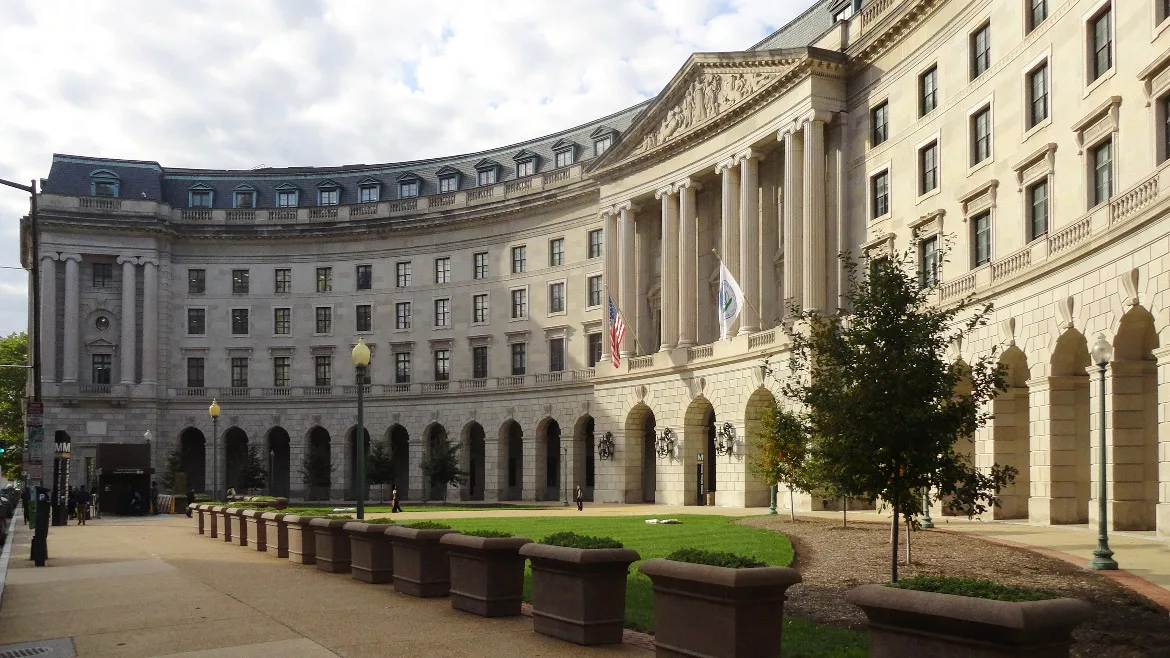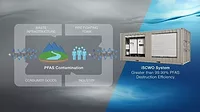Inspector General says EPA hasn't developed a process to prevent political interference
New report follows up on March 2023 report faulting the EPA for lack of safeguards during the Trump era

Main entrance of U.S. EPA Headquarters; the William Jefferson Clinton Federal Building on 12th Street, N.W., Washington, D.C. Photo by EPA
The U.S. Environmental Protection Agency Inspector General has yet to develop reporting procedures for scientific concerns involving political appointees. charges a memo issued this week by the agency’s own. This memo shows EPA's current and proposed Scientific Integrity Policy are flawed, according to a press release from Public Employees for Environmental Responsibility (PEER).
The setting for the current controversy concerns blatant manipulation by outgoing Trump appointees quashing staff scientist objections to downgrade the toxicity assessment for PFBS (perfluorobutane sulfonic acid), a type of PFAS (per- and polyfluoroalkyl substances). After the Biden inauguration, EPA reversed the Trump assessment, but in a March 2023 report the IG faulted the agency for a lack of safeguards to prevent repetition of similar political manipulation.
Initially, EPA rejected all the IG’s recommendations. In the subsequent months, EPA promised to address the IG’s issues in a still pending revision to its 2012 Scientific Integrity Policy. However, in a June 12, 2024, Memorandum, the IG contends that EPA’s proposed policy still fails to address “political interference” with agency science.
The IG had previously identified scientific integrity as among the top five management challenges facing Biden’s EPA. Notwithstanding the current EPA leadership’s repeated rhetorical commitment to principles of scientific integrity –
- As outlined in this memo and its latest Semiannual Report to Congress, the IG still does not have access to information about “allegations of interference and censorship by senior Agency employees”;
- A parallel inquiry by PEER revealed that the agency has no documentation of a single investigation into scientific misconduct, even during or since the Trump years; and
- The IG has issued some reports and has a series of other pending reports which have detailed or will detail ongoing EPA scientific integrity breakdowns.
“EPA’s Scientific Integrity Program lacks any shred of integrity,” commented PEER Science Policy Director Kyla Bennett, a scientist and attorney formerly with EPA. “EPA’s Scientific Integrity Program functions like a plumber’s unit whose sole function is to quash disclosures and smother scientists’ complaints.”
Earlier this year, EPA proposed a revision of its Scientific Integrity Policy and promised that this still unfinalized policy would address some of the problems pinpointed by the IG. However, that proposal concedes that procedures for “addressing scientific integrity concerns” have yet to even be developed but promises to “expeditiously draft and prominently post” them.
“EPA has one of the weakest Scientific Integrity Policy in government and its latest revision will add little of substance,” stated Pacific PEER Director Jeff Ruch, noting that the IG must do much of the work EPA should be doing itself. “Incredibly at this late date, EPA still lacks any internal mechanism for investigating, adjudicating, and punishing scientific misconduct, no matter how obvious or outrageous.”




